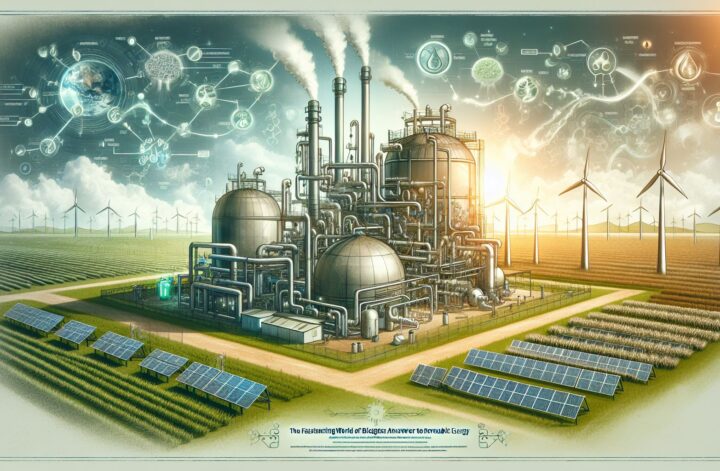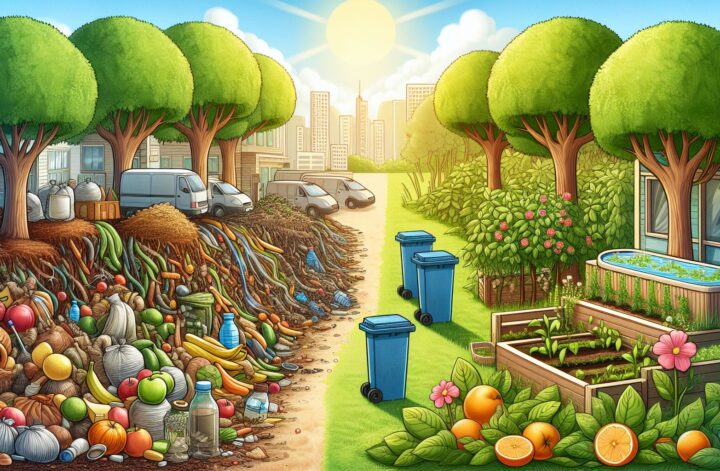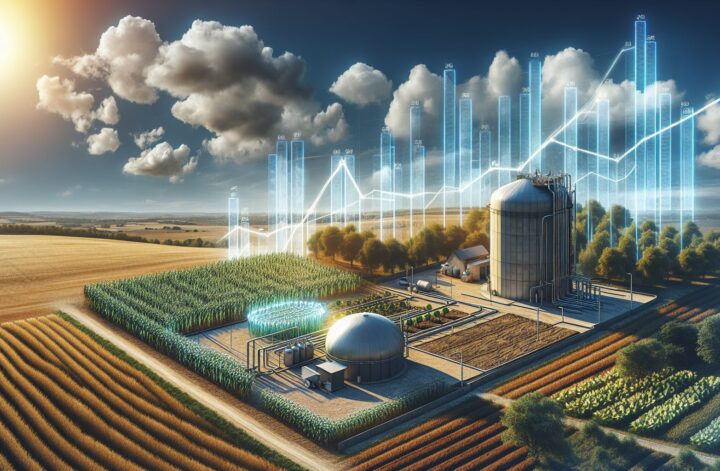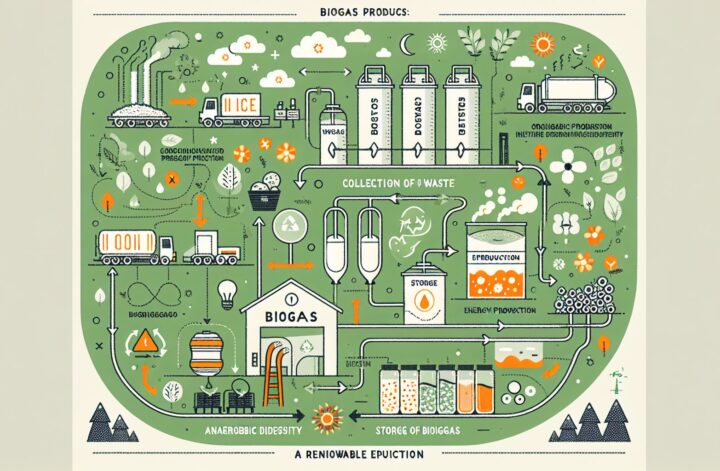The surge of carbon emissions has prompted global endeavors, bridging technological advancements with sustainable solutions to create renewable energy sources. Of those sources, one has proven its potential but remained undercapitalized — Biogas production.
Biogas production is a series of processes that biologically break down organic matter in the absence of oxygen, producing a gas predominantly composed of methane and carbon dioxide. This energy-rich gas, dubbed biogas, can be converted into heat, electricity, and even vehicle fuel [^1^]. In this piece, we will investigate the nuances through which biogas production happens, the benefits it affords, and why it should be a major point of our renewable energy dialogue.
Decoding The Process of Biogas Production
Biogas production comes to life through anaerobic digestion, a key player in various components such as hydrolysis, acidogenesis, acetogenesis, and methanogenesis.
Hydrolysis and Acidogenesis
Firstly, complex organic matter is broken down into simple compounds like sugar, amino acids, and fatty acids through hydrolysis. The substances then enter the next stage known as acidogenesis, where further breakdown generates volatile fatty acids and additional elements like carbon dioxide, ammonia, and hydrogen sulfide [^2^].
Acetogenesis and Methanogenesis
Acetogenesis follows, transforming the volatile fatty acids into hydrogen, carbon dioxide, and acetate, setting the stage for the concluding phase of methanogenesis. The methanogenesis stage is critical wherein a variety of methanogens convert these elements into methane and carbon dioxide, forming biogas [^2^].
The Value of Biogas Production
There are significant reasons as to why we should consider biogas production as a substantial addition to our renewable energy strategies.
Renewable Energy Source
Biogas production offers a renewable energy source, as the organic matters utilized in the processes are naturally replenishing. Moreover, the produced biogas can serve as a supplier of heat and electricity, as well as a viable alternative vehicle fuel when purified [^1^].
Greenhouse Gas Reduction
Biogas production contributes to greenhouse gas reduction. When organic waste decomposes in conditions with oxygen, it often creates methane, a potent greenhouse gas. However, Biogas production captures and utilizes that methane, reducing its emissions into the environment [^1^].
Effective Waste Management
Biogas production provides an effective solution for organic waste treatment. Instead of being disposed of, organic waste can be converted into the input material for biogas production, consequently minimizing the volume of waste destined for landfill.
Harnessing More Of Biogas: The Future Direction
It’s undeniable that harnessing biogas production can contribute to environmental sustainability and renewable energy sectoral developments. However, several areas need more focus to optimize this potential.
Improving Biogas Production Techniques
Techniques connected with biogas upgrading, where biogas is further refined to remove impurities and increase methane concentration, can be improved further for better efficiency [^3^]. More research and investment could boost these refining processes, yielding more high-quality, usable biogas.
Enhancing Biogas Usage
Another area requiring attention is the development of practical applications of biogas. Although the use of biogas as a source of heat and electricity is fairly established, its use as an alternative fuel for vehicles is yet to reach its potential [^3^]. Further exploration and investment in this sector could greatly advance the utilization of biogas.
In conclusion, the process of biogas production illustrates a unique marriage of biological and technological processes that successfully transforms waste into a renewable energy source. Given its benefits, it’s high time we elevated the conversation around biogas production and truly capitalize on its potential.
[^1^]: IEA Bioenergy (2020). Biogas Production – Analysis – IEA. https://www.iea.org/topics/renewable-energy/biogas-production
[^2^]: Borowski, S., & Weatherley, L. (2013). Anaerobic Digestion of Organic Solid Wastes – Conversion of Waste to Energy. Environmental Biotechnology- New Approaches and Prospective Applications.
[^3^]: Al Seadi, T., Rutz, D., Prassl, H., Köttner, M., Finsterwalder, T., Volk, S., & Janssen, R. (2008). Biogas Handbook. University of Southern Denmark Esbjerg.




